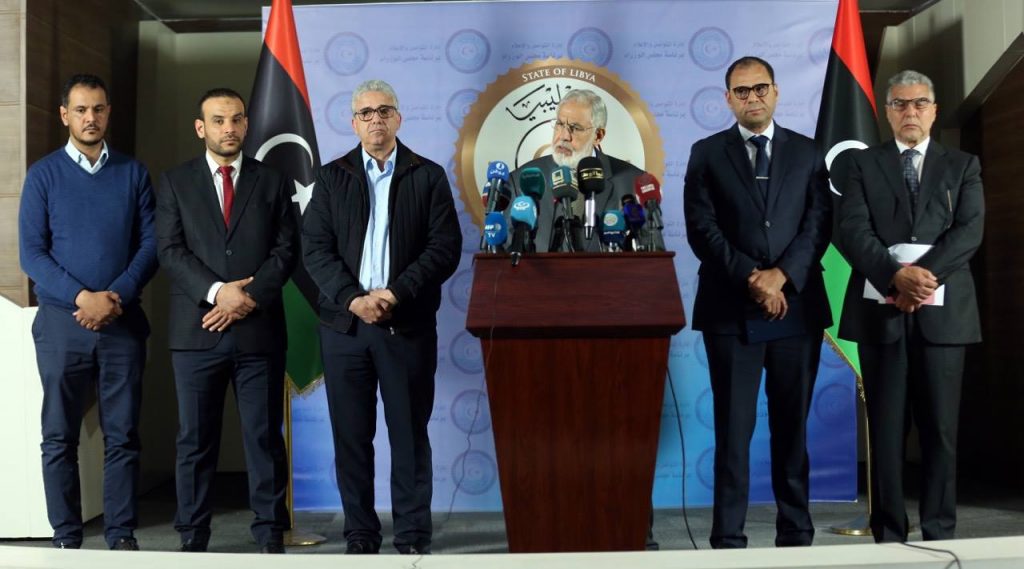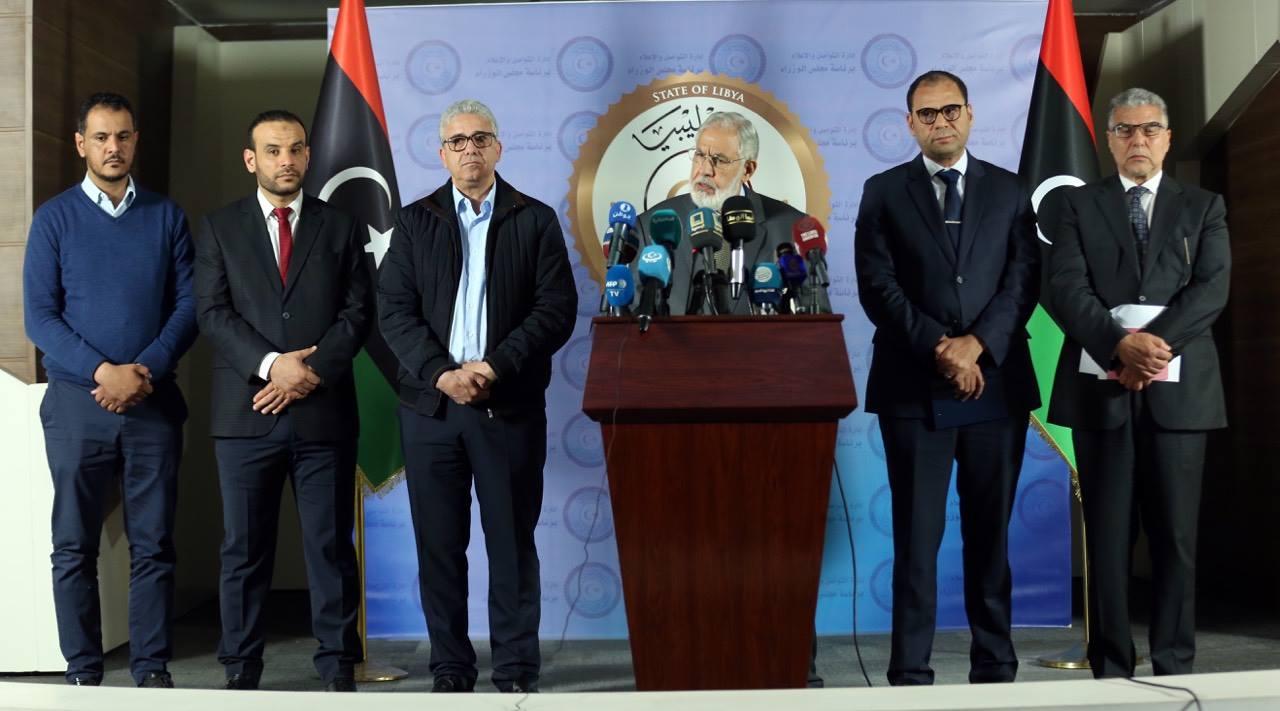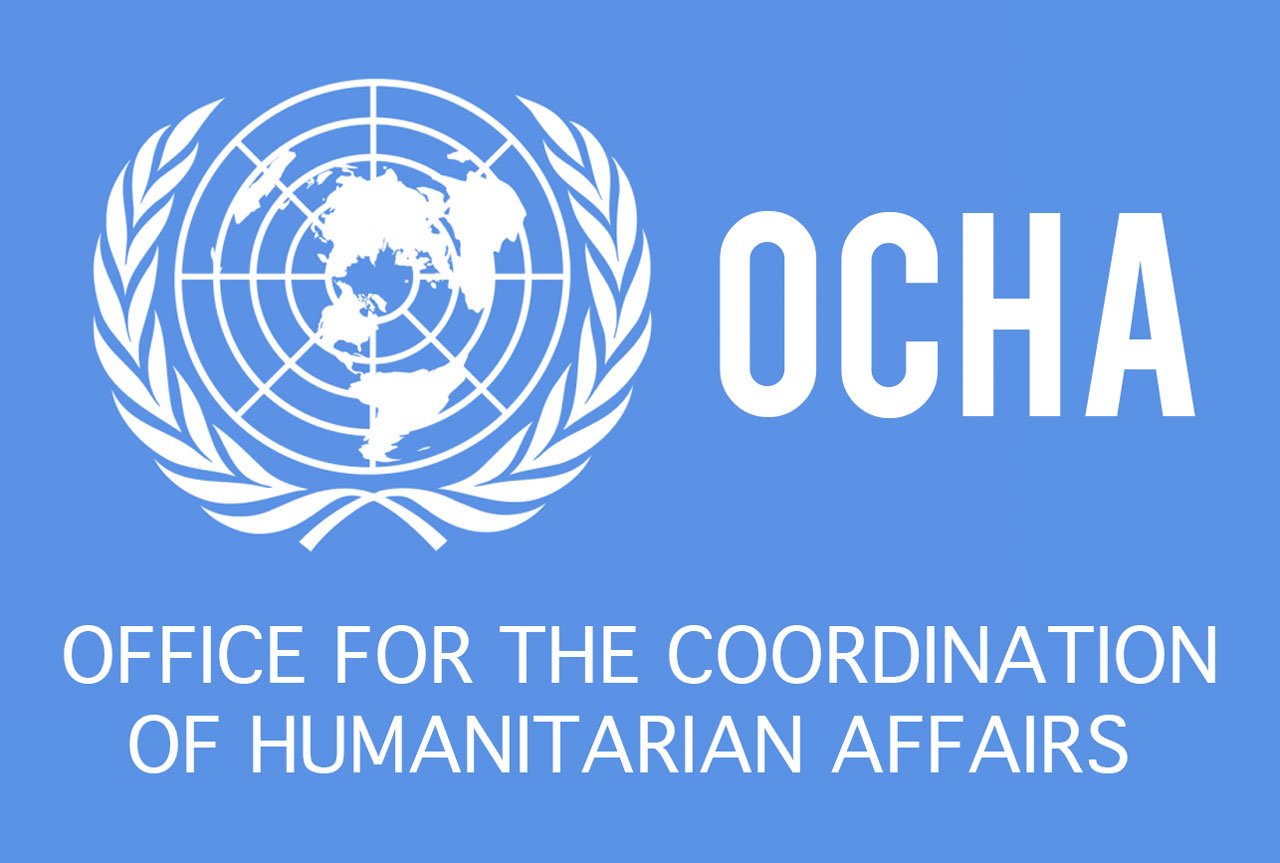By Sami Zaptia.

London, 16 April 2019:
The World Health Organization (WHO) said today that the death toll in the Tripoli fighting has now reached 147 dead and 756 wounded. It said that it has deployed additional surgical teams to support hospitals in the Tripoli area receiving trauma cases. These figures were higher than those reported by the Serraj Health Ministry and do not include those on the Hafter side of the fighting.
Meanwhile, the cat-and-mouse fighting continues with shifting fronts many of which are in or around residential areas. There is ongoing fighting in at least four main fronts. Many residents are stuck in the middle of the battles unable to evacuate.
The Faiez Serraj Presidency Council and Government of National Accord raised its media output considerably yesterday in response to a hostile and productive media campaign by the Khalifa Hafter camp. The Serraj government rolled out speakers from the Foreign, Interior, Health, Education Ministries as well as the General Electricity Company of Libya (GECOL) for a live press conference.
Foreign policy
Opening the conference, Foreign Minister Mohamed Siala said that there can be no equality in treatment between the aggressors on the capital and the defenders of the 2-3 million civilians who have been attacked by aircraft and heavy weapons without regard to international conventions and norms.
He pointed out that there is a difference between the Government of National Accord, which is committed to building a democratic civil state, and those who try to militarize the state.
Siala was alluding to reported efforts to mediate between Hafter and the Serraj government. The Serraj government has made it clear that after the end of fighting there will be no return to the political status quo ante bellum. That is, the the negotiating state with Hafter that existed before the war. This could mean the political work and agreement achieved at Paris, Palermo and Abu Dhabi could be lost.
Siala denied the allegations that there are terrorists participating on the Tripoli side in the clashes, confirming that the place for terrorists in Tripoli was in prisons.
He said that a letter was sent to the President of the UN Security Council to intervene urgently to stop this devastating war, which has been waged on the capital Tripoli for more than 10 days.
He said the war has caused the killing of civilians, displacement of people of all kinds, and spreading terror and fear in people through the use of all types of weapons, including aircraft, rockets and heavy artillery, and destroyed and inflicted serious damage on public and private property.
Siala also called for the UN’s historic responsibilities towards the devastating and catastrophic war on innocent people in Tripoli and its suburbs, warning of serious negative repercussions not only on Libya, but on the region and the world as a whole.
Interior Minister
Faiez Serraj’s Minister of the Interior, Fathi Bashaga, in turn, expressed his deepest sorrow to those attacking the capital, Tripoli, after being mobilized by false moral mobilisation, filled with hate and hatred, a type of terrorism that the “warlord ” Haftar had adopted.
He stressed that this attack endangered civilians and caused injuries in to public and private life and property, including the indiscriminate shelling of the Tripoli neighbourhoods of Hay Alakwakh and Ain Zara using the internationally prohibited Grad rockets. The attack also included one on Mitiqa airport and on Sug il Juma, inhabited by 500,000 inhabitants, with disregard for civilian life.
Bashagha referred to the media campaign led by some countries, to suggest that Tripoli has terrorists fighting within the ranks of the PC/GNA forces. He reminded that the PC/GNA was the side that fought ISIS in Sirte with the participation of all the people of Libya to eradicate ISIS.
He referred to the security cooperation between the various security agencies in Tripoli to maintain security, monitor any groups and individuals belonging to terrorist organizations. He confirmed the arrest of one or more terrorists and the storming of their headquarters. He confirmed cooperating with the US government, which provided logistical technology.
“The whole world bears witness to the fact that the western region is free of terrorism after its elimination in Sirte, the infiltration of some of them into the desert and the entry of some across the open border. We suspect and accuse the intelligence of some countries of facilitating the transit of these criminals and terrorists to Libya to create chaos in Tripoli.”, Bashagha said.
He also pointed out that the international community is still watching and still divided in the Security Council, and some of the regional community support this attack on Tripoli.
He praised the Ministry of Interior’s plan to establish security in Tripoli and the security presence around the clock. He said that he had instructed all local and regional Security Directorates to register complaints from citizens of shelling or any breaches of human rights and property. He said that there is cooperation with the judicial authorities to detail the violations.
He pointed to the arrest of a terrorist group by the Rada Special Deterrence Force of the Ministry of Interior, stating that the Ministry has a clear and visible security plan to monitor any extremist or terrorist infiltrating the capital because of the vacuum caused by this (Hafter) terrorist attack.
Education
On the education front, the Minister of Education, Osman Abdel Jalil announced the discontinuation of schooling in the Gharian, Azizia, Nawahi Alarba, Tajoura, in addition to the use of some schools as shelters for the displaced, indicating that this will affect the educational process.
He added that the bombing of the main Ministry of Education book stores in Ain Zara and the damage of the ministry’s inventory of books, educational inspection kits and exams, will have a significant impact on the educational process and is detrimental to the psychology of students who are having midterm exams in the coming days.
Health
The Undersecretary of the Ministry of Health of Dr Mohammed Al Haytham Issa reassured the residents of Tripoli that hospitals are functioning excellently in a difficult time, according to the prepared plan to deal with the crisis.
He said that preparations are good in terms of the routine supply of hospitals in all regions except those that cannot be reached like Gharian and Al-Sbaa hospitals (which are either in the Hafter controlled areas of fighting or are in the no-mans-land).
He denied rumours and news circulating through the media and international organizations that Libya was supplied with medical assistance, sending a message to the world that the (Serraj) Libyan government is not in need of support in terms of medicines and equipment.
However, he stressed that it is in need for international support to stop the war. He called on the media to document the supplies in the warehouses and the ambulances that were provided in all areas to evacuate the wounded and civilians.
The Director General of the Field Medicine Centre also presented a review of the plan of work in the areas of clashes and the field hospitals. These were established in the areas of Ain Zara, Aziziya, al-Kremia, Airport Road, Salah al-Deen and Wadi al-Rabia to aid the wounded in field hospitals and hospitals. Those that cannot be treated are referred to private-sector clinics, it was revealed.
The Field Medicine Centre Director General said that of the 475 registered wounded, a large percentage of them were civilians and this was as a result of indiscriminate shelling. This led to 70 deaths made up of 24 civilians, 2 women and 3 children. He said the more complex health cases were transferred abroad: 75 to Tunisia, 17 to Turkey and 2 to Italy.
His death and wounded figures differed widely to those released by the World Health Organization Libya office.
With regard to the supply of medicines to the field hospitals, he explained that they were carried out periodically and that the affected evacuation was carried out in the areas of clashes where the centre evacuated 350 families and other evacuations carried out by the Red Crescent and the ambulance and emergency apparatus.
Electricity
On the electricity front, the Chairman of the state General Electricity Company (GECOL) Abdel Majeed Hamza, revealed that the company suffered technical problems due to the clashes which led to a complete blackout in some areas.
He said that the electricity sector is the most seriously damaged, as a result of the presence of electricity transmission lines in the areas of clash extending from the Aziziya area westward to the areas of Wadi al-Rabia and Ain Zara.
He explained that these areas represent the passage of the super-voltage traffic line which is a very important line. The area houses the 220 KV and a number of other 400 KV lines. There are also the medium voltage lines.
He revealed that there are 16 lines out of operation as a result of the armed clashes on the outskirts of the capital.
He pointed out that there were different areas in a state of complete blackout, and that GECOL’s technicians could not re-connect them as a result of the continued clashes.









